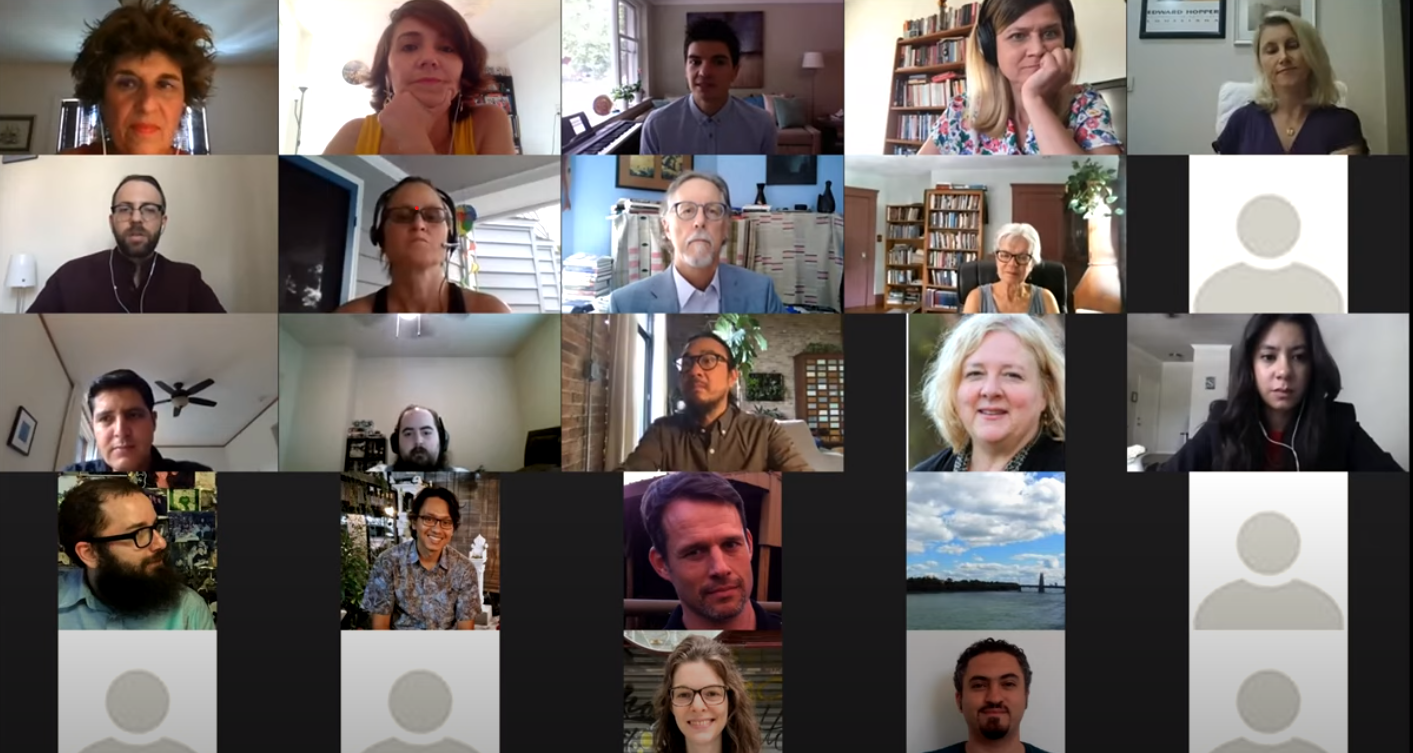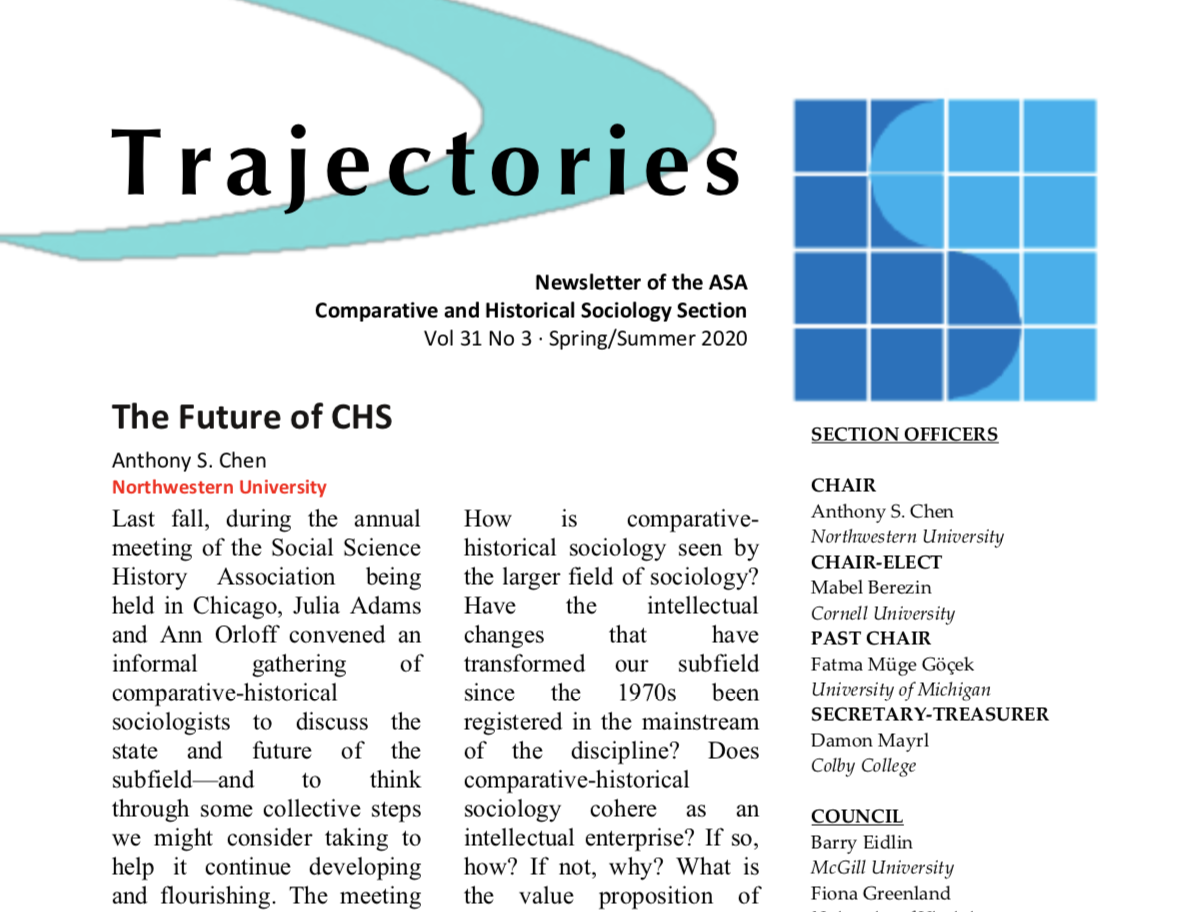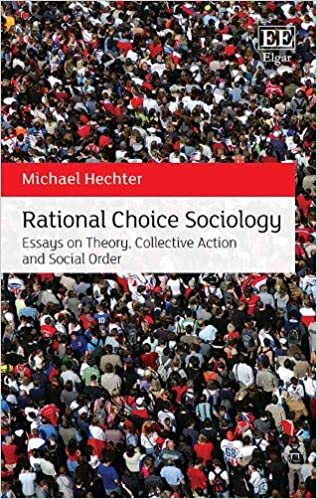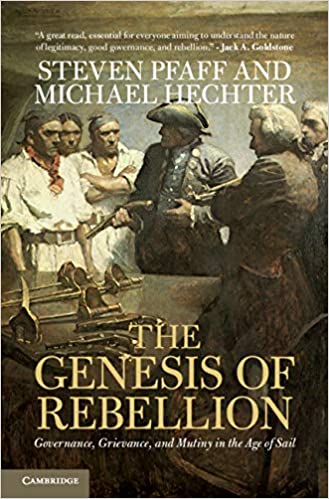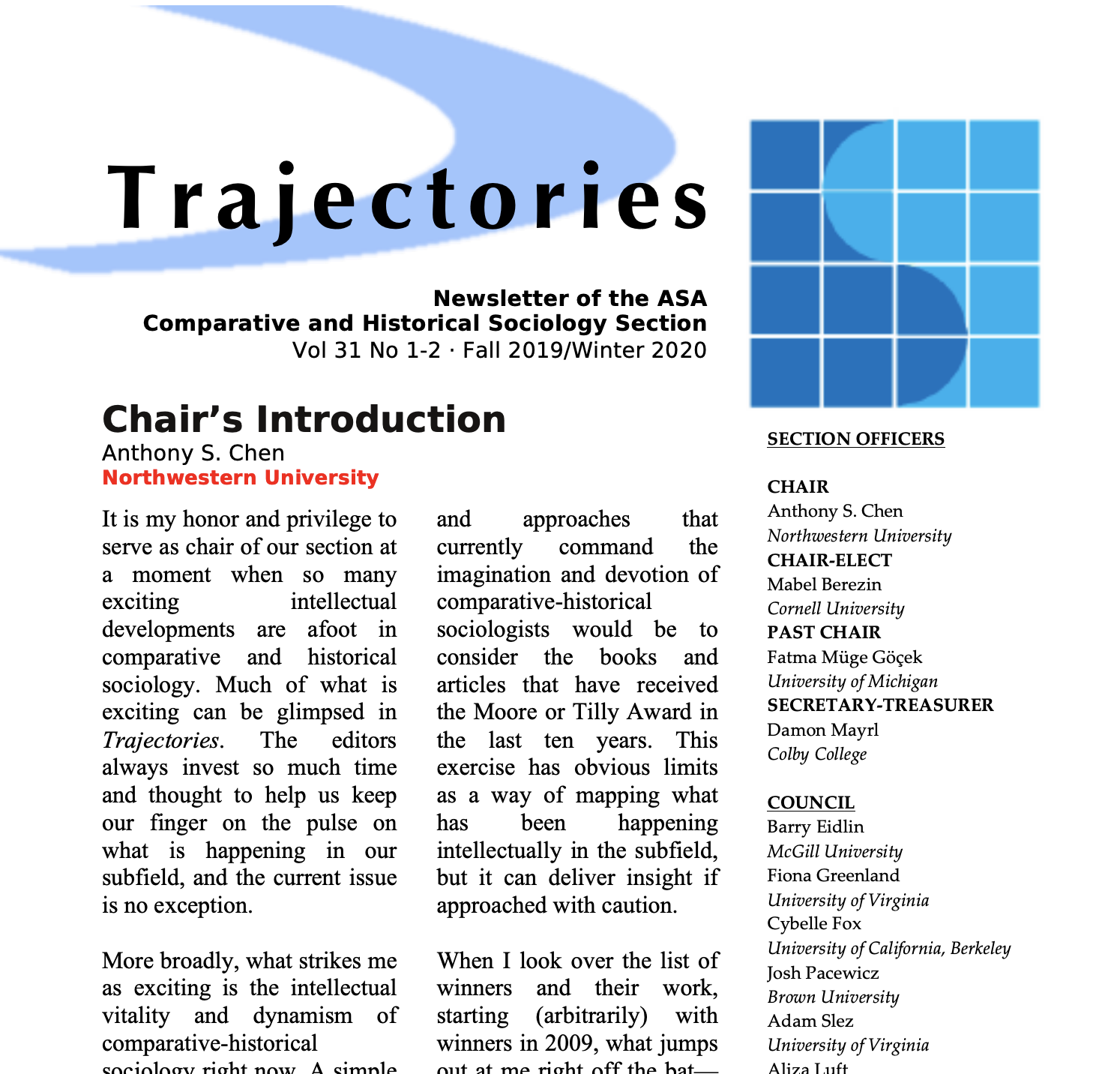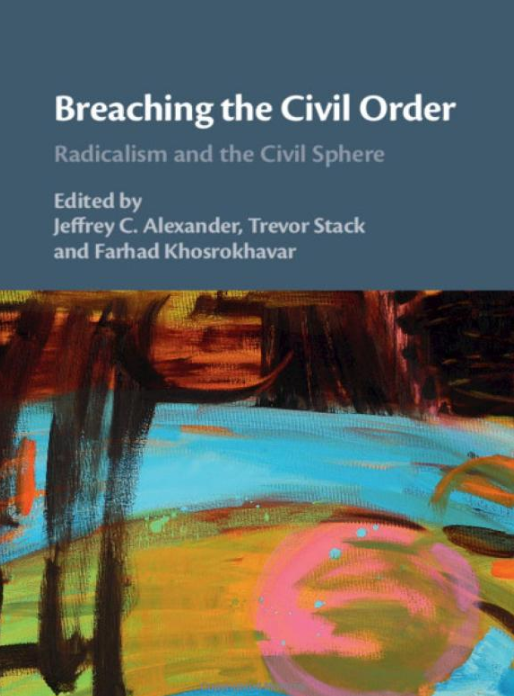Şahan Savaş Karataşlı
There is probably no better example of why “it is much easier to imagine the end of the world than the end of capitalism” than governments’ responses to the ongoing Covid-19 pandemic. The problem is not so much that the structural and ideological hegemony of capital accumulation prevents us from imagining alternative forms of organizing the economy, society, and politics. It is that, short of a global revolution that replaces the current world order with an alternative, endless accumulation of capital seems to be speeding up the coming of the end of the world at a much faster pace than contributing to its own demise. “Socialism or barbarism” was an appropriate slogan for the global left in the early 20th century, but it no longer is. Considering the deep interlinked crises that are on the eve of destroying the planet, the slogan that reflects the reality of the 21st century is “Socialism or apocalypse.”
Capital, Labor, and the State during the Coronavirus Lockdown
The capitalist world-system we are living in has proven to be completely incapable of dealing with such a pandemic, which is unfortunately the least of our problems, considering the environmental, social, and geopolitical crises that are waiting at our door. Clearly, the problem at hand is not a lack of scientific knowledge, technology or socio-political means to stop the spread of a new virus. We have all this in the early 21st century. The real problem is that under capitalism any strategy or form of action that could potentially save millions of lives is immediately rejected if it has the side effect of temporarily halting or slowing the pace of capital accumulation.
It is crystal clear that the class character of capitalist relations is deeply at odds with the state’s manifest aim of protecting citizens’ lives. Government responses to the Covid-19 pandemic reveal once again that when rulers around the world realize that they need to make a choice between risking either capital accumulation or human lives, most opt for risking/sacrificing the latter without much hesitation. This choice is self-evident in the hypocritical suggestions several governments have made concerning how to stop the pandemic. Most of them ignore the class character of the world we are living in and the concrete conditions of the global labor force.
In the United States, for example, working class people, who cannot afford losing their jobs or their wages, are asked not to go to work if they are sick. Yet, they are often not granted any paid sick leave. People are advised to immediately seek medical aid when they show symptoms of high fever and dry cough. Yet, a right to universal healthcare and proper social security is denied them. Although the USA is a somewhat extreme example in terms of lack of social security and health care rights, other examples of hypocritical suggestions can easily be found in other regions of the world. For many precarious workers around the world who try to survive within the interstices of the informal economy, for instance, “social distancing” is not an option because it means hunger, homelessness, and starvation. While respectable citizens are asked to stay at home, to create their “home offices” and take time to protect themselves, “essential workers” (a category which must be registered as capital’s confession about who produces “value” in the economy) in material production, circulation, and logistics (and of course in health industries) are forced to work and reproduce their livelihoods in unsafe conditions.
It would be wrong to suggest that the Covid-19 pandemic is going to trigger a universal crisis for capitalism. As in every crisis, the effect of the crisis on capitalist enterprises will be uneven across sectors. While some sectors see many bankruptcies, others will profit from the chaos and misery. So far, the spread of the coronavirus has been a goldmine for e-commerce marketplaces and the logistics/delivery sectors (such as Amazon, Instacart, Alibaba.com, Deliveroo), many pharmaceuticals, and online entertainment, streaming, and videoconferencing companies, to cite a few.
If we turn our gaze from capitalist enterprises to their workers, however, we will see a different picture. Even workers employed in businesses that produce super-profits out of the current crisis will be negatively affected by the crisis. Companies such as Amazon and Instacart can more easily deny workers’ demands and rights because of the accumulation of a gigantic reserve army of labor of those who have lost their jobs due to the slowdown of the economy and to the stay-at-home orders, which has left many eager to take dangerous jobs at low wages and unsafe working conditions should Amazon and company need to replace recalcitrant employees. The overwhelming majority of the unemployed are not given proper compensation to pay their rent, cover their bills, and look after their families. The relative size and geographical spread of the emergent reserve army of labor will probably far exceed the levels we saw in the aftermath of the 1929 crisis. In short, Rosa Luxemburg’s dictum is even more relevant today: the only thing worse than being exploited by capital in deadly/unsafe conditions during a pandemic is not being exploited at all.
Ineffective Government Responses in Financialized Economies of the Global North
Interestingly, what appears at the first sight as “ineffective government responses” to the Covid-19 pandemic—such as lack of extensive testing and transparency and a slow response—turn out to be more beneficial than its alternatives. Proposed strategies such as flattening the epidemic curve by means of “social distancing” and “slowing down” are indeed counter-productive for capital accumulation for most sectors. After all, capitalism has always been characterized by the opposite movement. It tends to produce space-time compression by “connecting” the most distance parts of the world and “speeding up” social and material interactions. This is why, as far as capital accumulation is concerned, it is more rational to let the disease spread and wait for it to disappear on its own than to prolong social distancing and slowing down, which would eventually exacerbate the existing economic stagnation and crisis in the capitalist world economy.
This is probably why, for much of the world—especially in regions which opted to gain profits primarily out of financial speculation and intermediation rather than material expansion of commodity production—letting the novel coronavirus spread to 65 to 85 percent of the population will be a quicker and less costly solution (in terms of what is economically important: profit). And there is also an added bonus for business-government complexes in the global North: The prediction that 2 percent of the infected population that would “unfortunately” die with this strategy will be concentrated overwhelmingly among the elderly—i.e., ex-commodified sections of the relative surplus population who can no longer be exploited by capital but who have been receiving pensions that they secured during the post-war era.
From this perspective, pursuing what is often called “herd immunity” is a predatory accumulation strategy with genocidal implications for elderly people. Contrary to common assumptions, however, this strategy is not a mere fringe proposal but is instead being implemented in practice by many governments that are responding to the pandemic slowly or ineffectively. By externalizing the responsibility of “social distancing” to their citizens, by failing to help the working classes and broader masses prepare for the pandemic in a socially responsible way, and by rushing to return the economy to normalcy, many governments are already following the pro-capital “herd immunity” strategy without saying so.
Considering the lack of transparency, lack of tests, and systematic underreporting of infection and death rates, it appears that many governments are banking on the assumption that the overwhelming majority of Covid-19 related fatalities will occur in the shadows, without attracting much attention or criticism. Comparing our current experience with the 1918 pandemic, we might see how this can be the case. While the so-called Spanish flu pandemic killed between 50 and 100 million people worldwide—more than both of the world wars combined—it did not attract much attention largely because, as Martin Kettle put it, “its onslaught did not occur in public but in private, behind closed doors in millions of homes.”
Of course, the reason why many governments are forced to experiment with this “strategy” is because they do not have sufficient resources to deal with the pandemic. The lack of resources, even in the “most developed” parts of the world, and the inability to produce simple masks and protective gowns, let alone ventilators and diagnostic tests, signal the level of crisis produced by financialized capitalism. Put more directly, since finance capital has been totally remiss with regards to actual productive activity, lack of preparedness for the pandemic is one implication of the financialization of economies.
Value Production in Emerging Markets of East Asia, New Leviathans, and New Authoritarianism
Although the “herd immunity strategy” is widely used in various parts of the world, in some of the emerging economies of the global South, especially in the East Asia, we see a different picture. Instead of ineffective government responses, in regions such as China and South Korea, we see “successful” interventions by strong states. While China’s and South Korea’s responses are sometimes viewed as opposites—one based on hardline lockdowns, the other on transparency, government-society cooperation, and extensive surveillance—in reality they represent two varieties of a similar kind of response made possible by the existence of the same geopolitical-economic context and similar strategies of capital accumulation. In contrast with the previously-industrialized capitalist economies of much of the global North which are now leaders in financialization, capital accumulation in these regions is primarily based on material production of commodities. Consequently, value production is strong enough to accommodate the costs of a strong state-led response to stop the spread of the pandemic. While containing the pandemic through complete lockdowns, construction of new hospitals, distribution of masks and protective gear, and reliance on surveillance and extensive tests are expensive in the short run, the existence of material and labor-intensive value production ensures that these economies will recover quickly. Likewise, to ensure that labor-intensive value production can continue in the long term, these governments are also more motivated to take strident measures to protect the human population.
As in previous epochs, the effects of these divergent capital accumulation strategies may have very significant effects for politics at the global and local levels. At the global level, for instance, the relative failure at containing the coronavirus pandemic in the core capitalist regions in “the West” versus the relative success in the emergent geo-economic powers in “the East” became an important symbolic marker signaling the demise of the superiority of “the West” and giving the government-business complexes in the Eastern Asia region an opportunity for global leadership in the 21st century, if they play their cards right. From this perspective, the crisis produced by the Covid-19 pandemic may play a comparable role to that of the world wars in affecting the last world-hegemonic transition.
At the local level, the same processes have the potential to further strength the already-existing authoritarian tendencies arising in much of the world. Interestingly, in the face of the so-called “ineffective government responses” that risk millions of lives, many citizens around the world have already started to ask their governments to declare curfews, stay-at-home orders, travel bans, and other “limitations of rights and liberties” to stop the pandemic. This call from below for new “Leviathans” during the current state of (capitalist/pandemic) nature is also an open invitation to the right-wing authoritarian leaders to grab power, as Viktor Orban recently did in Hungary. Currently, some right-wing authoritarian governments seem to be using the lack of mass mobilizations from below, due in large part to the pandemic, as an opportunity to suppress their democratic challengers and opponents. In Recep Tayyip Erdogan’s Turkey, for instance, the AKP government has taken control of four more pro-Kurdish municipal administrations (Batman, Silvan, Lice, and Ergani), removing the pro-Kurdish HDP mayors from their posts, detaining them, and appointing their own trustees. Using Covid-19 as a pretext, the same government is working on a law that would release 90,000 criminals from prison—but that would keep political prisoners locked up.
Ideas such as closing the borders, controlling immigration, increasing surveillance, and using strategic censorship to avoid panic also resonate with authoritarian nationalists seeking power elsewhere in the world. Considering that such pandemics or other forms of environmental, social, and geopolitical crises will continue to take place in the following years and decades, probably at an increasing pace, it is not difficult to see that the global right will use such crises to declare Schmittian “emergencies” and thus to take power and expand their influence in many parts of the world in the name of protecting their people.
The Global Left and Internationalism in an Era of Pandemics
It is important to note that although the Covid-19 pandemic helped a broad spectrum of the left refresh their faith in a critique of capitalism, the global left has not been a major actor in shaping responses to the pandemic crisis so far. As far as the global left is concerned, the Covid-19 pandemic teaches an important historical lesson: Being correct on a political issue is not sufficient to win a struggle. At first sight, the Covid-19 pandemic appears to be a huge opportunity for the global left because it reveals the hypocritical class character of the world-we-are-living-in in a very explicit manner, even to the most skeptical of eyes. In many parts of the world, leftist organizations have raised urgent demands such as safer work conditions, paid sick leave, the right to stay at home, unemployment benefits, and a rent freeze. Given the pandemic, these ideas appeal not only to the left’s usual constituents but also much more broadly. It has even been argued that everyone became a socialist during the pandemic. Yet, the global left has not been a major player in this transformative moment.
The crux of the problem is that the global left has been raising demands in an abstract manner without an equally strong mass mobilization from below. While there are obvious challenges regarding finding ways to initiate and sustain collective action from below in an era of pandemics, millions of people who manage to work in this environment have the capacity to develop and employ suitable forms of collective action. Indeed, this is already happening. From Italy to the USA there are ongoing and very serious efforts by workers to organize union-led or wildcat strikes and other forms of collective action from below, such as workplace occupations. Considering the structural bargaining power most “essential” workers have at this point, it is not inconceivable that we might soon see a major wave of collective action from below similar to the resurgence of labor unrest during and in the aftermath of the world wars.
Yet, for this emergent wave of labor unrest to be successful, as we struggle to “flatten the epidemic curve,” we must also find ways to “unflatten the collective action curve” by coordinating and synchronizing spontaneous mass actions from below. Governments and businesses can easily ignore and suppress many particularistic, uncoordinated forms of spontaneous collective action if they are dispersed over time and space as isolated events. However, if movements are coordinated and clustered, the frequency, geographical spread and strength of these movements will pass governments’ and businesses’ capacity to contain and suppress them, which will give the movements the necessary power to push forward their demands. This is what we can expect under Covid-19.
Of course, the key task of activists should not merely be “clustering” the movements in space and time but also helping workers in different sectors, peasants/small farmers, movement lawyers, cooperatives, unions, etc. develop solidaristic relations and coordinate with each other. The key problem of sustaining prolonged strikes in this environment is the lack of resources: first and foremost food, shelter, and medical supplies. This is where solidarity with the peasantry, semi-proletarianized workers who still have access to land, and production cooperatives comes into the picture.
While the formation of a “movement of movements” at local and global levels is an absolutely necessary component of a successful global left strategy, it will definitely not be sufficient in the long run. Furthermore, to win, it is not enough to have short-term bargaining power against businesses and governments. The actual victory of the global left also requires a total transformation of the social, economic, and political systems we are living in, with a global and long-term focus. Our experience with the coronavirus pandemic illustrates why such representing, bringing to the front, and defending the global and long-run interests against particularistic gains is absolutely vital. Today, with the advantage of hindsight—i.e., seeing how Covid-19 has been spreading all around the world and how it is not feasible to contain once it has spread in this manner—many would agree that the best way to protect lives in the rest of the world would have been to identify and exterminate the disease when it first originated in Wuhan. The problem is that when the coronavirus outbreak occurred, only a few realized that the fate that befell the people of Wuhan would soon be that of the people of Lombardia, Madrid, Qom, New York City, Istanbul, and the rest of the world. De te fabula narratur.
The interesting property of the coronavirus pandemic is that it spreads at such a quick rate that it is like a slap in the face, reminding us about the stupidity of our egocentric and myopic biases based on our current particularistic experiences. Our obsession with our own experiences at the present moment (and our related assent to national, racial, and class-based boundaries) creates the dangerous illusion that the story told is not actually ours, that what we see elsewhere in the world is not linked to us, that it is their fate and their problem and there is not much we can do other than to feel sympathy for them. Due to the extraordinary speed of the spread of coronavirus, it is easy to see how utterly nonsensical this egocentric, particularistic, and presentist worldview is.
We are living in a world where the fate of our lives depends on others not only in spatio-temporal terms but also in terms of asymmetric power relations. Our key problems in social, economic and political spheres are interlinked in complex ways. So are the possible solutions to our problems. During normal times, when we talk about environmental crises, geopolitical wars, refugee crises, economic crises, unemployment, and class/ethnic/national/gender-based oppression, it is more difficult to see that the fate of all humanity is also linked to the fate of the most oppressed, exploited, and excluded sections of society and to nature.
It is now relatively easier to see that to emancipate all humans and other natural beings, we need to exterminate systems generating exploitation, oppression, and exclusion not only in our geographies but everywhere they exist. So, in addition to a “movement of movements” that would forge international solidarity at local, national, and global levels, the global left needs an internationalist political organization to defend the long-run and universal interests of these movements with an eye to exterminating such systems. The global left is not ready for this in its current struggle against Covid-19; but as I mentioned at the beginning, this is unfortunately the least of our problems now. We will get through this Covid-19 pandemic period in one way or another, but the exploitative, oppressive, and exclusionary systems that we are living in will survive. Thus, we must be ready for the more decisive struggles that await us.
Şahan Savaş Karataşlı is an Assistant Professor of Sociology at University of North Carolina, Greensboro. His research areas include international political economy, global and comparative-historical sociology, and social movements, with a focus on financialization, nationalism, and labor movements.

